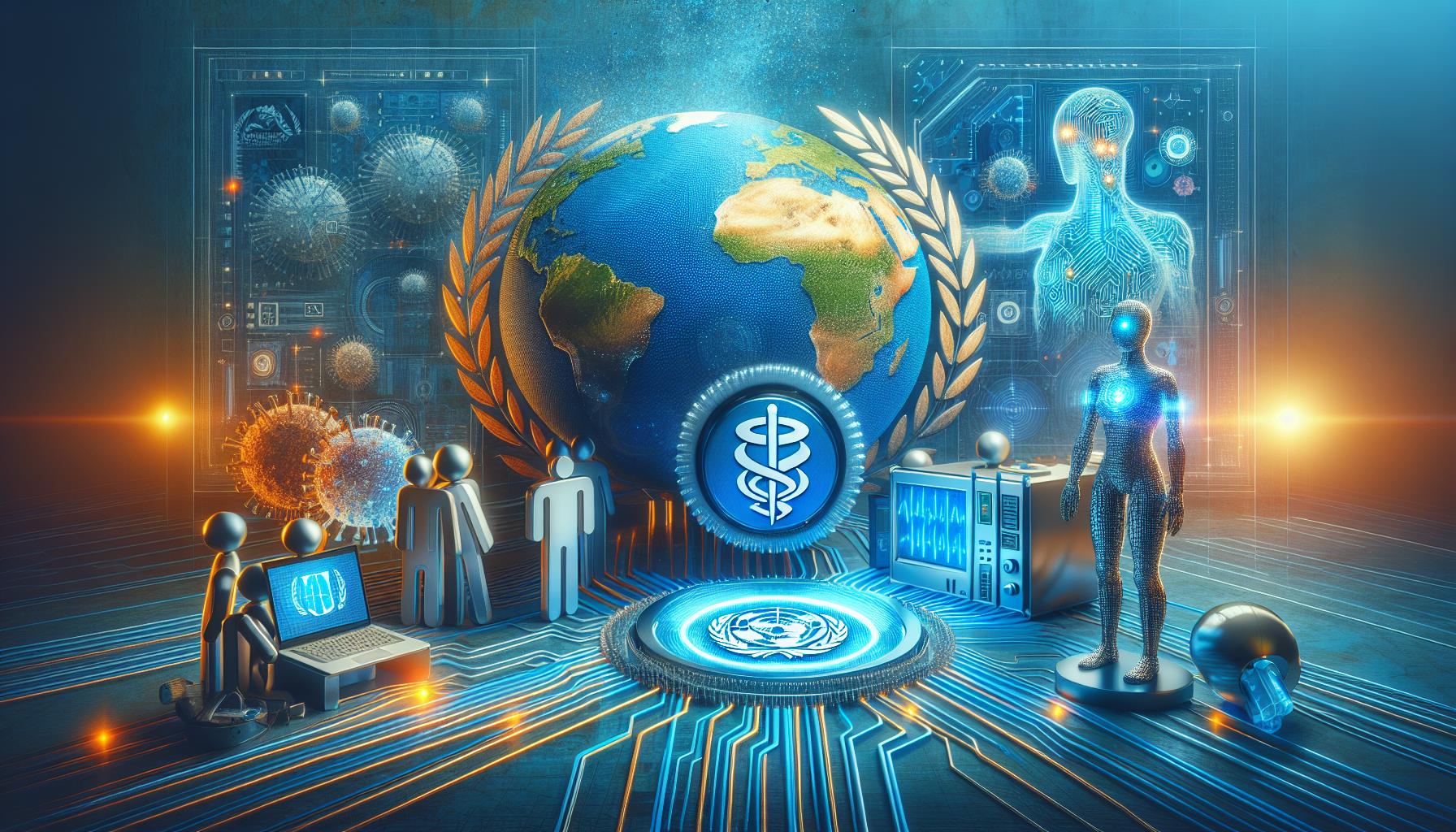WHO’s AI Endeavors
The World Health Organization (WHO), in its continuous effort to advance global healthcare, has embarked on a groundbreaking journey by integrating artificial intelligence (AI) into its operations. This strategic move is aimed at enhancing the efficiency and accessibility of medical information worldwide. With healthcare innovation accelerating at an unprecedented scale, particularly in the digital sphere, AI’s role in transforming disease detection and treatment has become more significant than ever.
Amidst multiple humanitarian and climate-related crises threatening lives and livelihoods around the globe, the WHO’s initiative to leverage AI technology comes as a beacon of hope. The organization’s appeal for health for all to be placed on the highest political agenda underscores the urgent need for innovative solutions in addressing global health challenges.
AI Tool Functionality and Design
The WHO’s AI tool is designed to provide immediate, accurate answers to common medical questions, thereby democratizing access to health information. By utilizing advanced natural language processing algorithms, the tool can understand and process queries in everyday language, making it accessible to a broad audience regardless of their medical knowledge.
Furthermore, the AI tool is constantly learning and evolving. It is trained on a vast database of medical literature and guidelines, ensuring that the information it provides is up-to-date and evidence-based. This continuous learning process allows the tool to refine its responses over time, adapting to new health trends and discoveries.
Impact on Global Health Information Access
One of the most significant impacts of the WHO’s AI tool is its potential to bridge the information gap in underserved regions. In areas where access to healthcare professionals and medical facilities is limited, the tool offers a vital source of reliable health information. This can empower individuals to make informed decisions about their health and seek appropriate care when necessary.
Moreover, the tool’s multilingual capabilities mean that it can serve a global audience, breaking down language barriers that often hinder access to quality healthcare information. By providing answers in multiple languages, the WHO ensures that vital health information is accessible to people worldwide, regardless of their native language.
Enhancing Healthcare Delivery and Disease Management
The integration of AI in healthcare goes beyond providing information; it also has the potential to transform healthcare delivery and disease management. For healthcare professionals, the WHO’s AI tool can serve as a support system, offering quick access to guidelines and evidence-based recommendations. This can aid in diagnosis and treatment decisions, ultimately improving patient outcomes.
In the context of disease management, the AI tool can provide personalized advice and reminders for medication, follow-up appointments, and lifestyle modifications. This personalized approach can significantly improve adherence to treatment plans and encourage proactive health management among patients.
Challenges and Future Directions
Despite its numerous benefits, the implementation of AI in healthcare is not without challenges. Issues such as data privacy, security, and the need for robust regulatory frameworks are at the forefront of discussions. Ensuring the ethical use of AI and protecting patient data are paramount for the WHO and other stakeholders involved in this initiative.
Looking ahead, the WHO plans to further refine its AI tool and expand its capabilities. This includes integrating more specialized medical knowledge, improving its interaction with users, and enhancing its predictive analytics features. The goal is to create a more dynamic and interactive tool that can anticipate users’ needs and provide even more personalized and actionable health information.
The World Health Organization’s AI tool represents a significant step forward in the quest for global health equity. By harnessing the power of artificial intelligence, the WHO is not only improving access to health information but also paving the way for more innovative and effective healthcare solutions. As this tool continues to evolve, it holds the promise of transforming the global health landscape, making health for all a more achievable goal than ever before.
In a world where health challenges are becoming increasingly complex, the WHO’s AI initiative serves as a reminder of the potential for technology to drive positive change. It is a testament to the organization’s commitment to leveraging cutting-edge innovations to promote health, keep the world safe, and serve the vulnerable.
